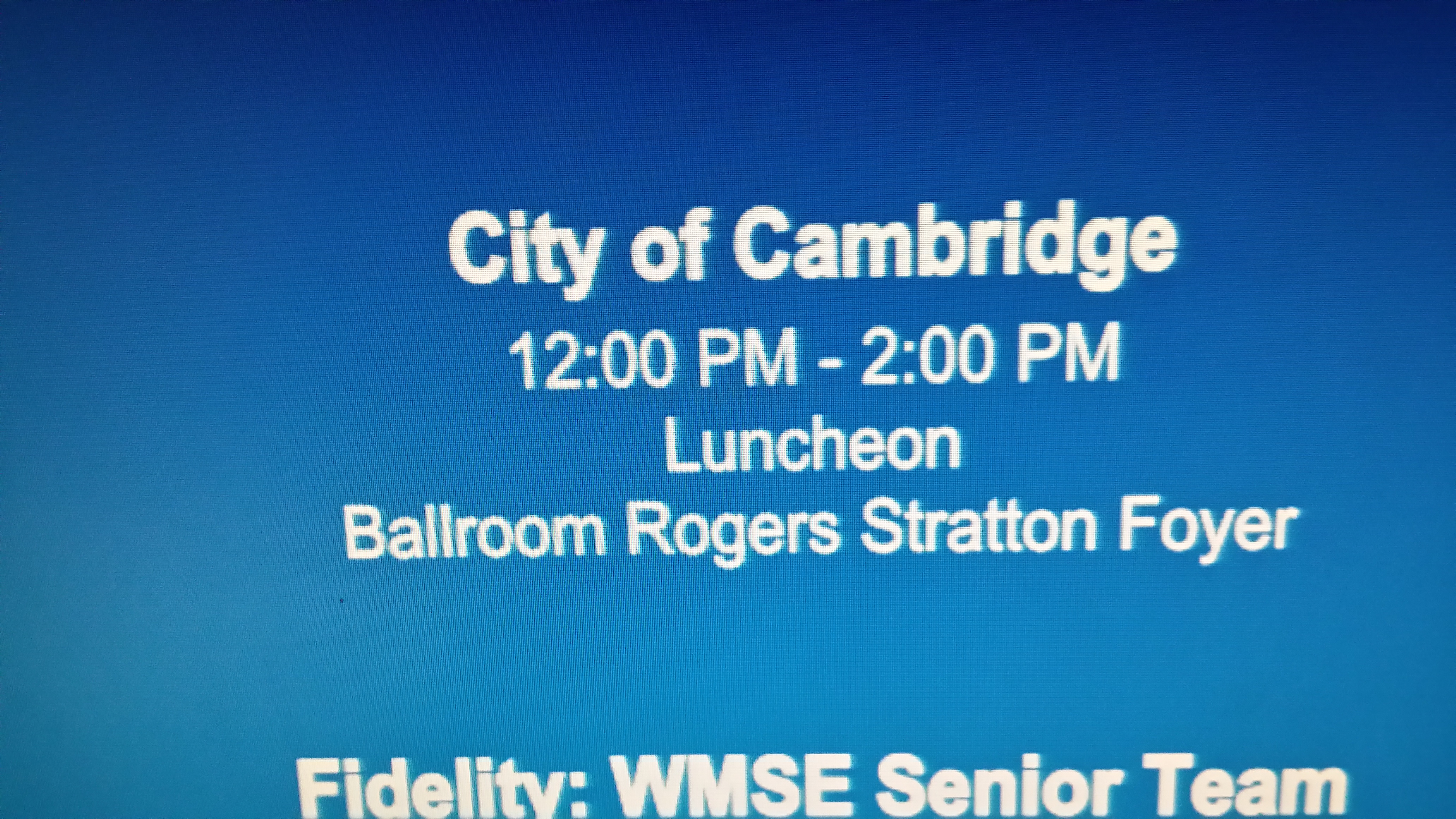Folks:
Today I was deposed as an expert witness in a software patent case. An attorney charging $500 per hour was supposed to be asking me tough questions while three more attorneys and a court reporter looked on. Due to the lack of slack in the American airline system, the recent snowy/icy weather had caused all of the attorneys to spend 6-7 hours waiting in various airports day after day and only three out of four made it to Boston. The attorney asking the questions was marooned in a hotel in Denver, Colorado while the rest of us sat in a meeting room at the Charles Hotel in Cambridge, Massachusetts.
The solution was a pair of iPads and Apple’s Facetime software. It would have worked out great from a hotel in Singapore to a hotel in Hong Kong or from Seoul to Tokyo. But high-speed Internet seems to be one thing that nearly all American hotels aren’t capable of doing (see my July 2004 posting from a $300/night hotel in Los Angeles, this November 2005 report comparing California and Mexico, this August 2006 posting from an expensive casino). So the connection kept going in and out, resulting in a waste of more than $2000 in combined fees (the deposition took about an hour longer than it would have).
Why is this something that Americans cannot master? Given the value of business travelers’ time, you’d think that this would be something that business hotels would be great at doing. They spend a fortune making it faster for frequent business travelers to check in and out. Why not make it possible for those folks, who can’t wait an extra three minutes to check in, to get some work done?
[Separately, the fanciest hotel in Cambridge was hopping at lunch time today with a banquet for hundreds of people. Who were they? City of Cambridge employees celebrating the recent election of City Council members (work one evening/week for nine months/year and get paid $75,000 (September 2013 posting))) using City resident tax dollars.]



These hotels have built the minimum that the market demands. Many (most?) of them have per-day fees approaching $20, and that gives you enough service to check your email and maybe watch a little Netflix with an occasional pause.
The question isn’t why we can’t, but why we don’t. And the answer is straightforward. Most business travelers don’t need that level of service, and the hotel chains are more profitable because of it.
A hotel was a poor choice of location for a conference room with good internet. I would have looked for a co-working space with a conference room to rent by the day.
might as well add that Charles Hotel luncheon tab to the $20,000 in students loans at UMass-Dartmouth that the younger Boston Marathon bomber had taken out. We have similar situation with the board members of the Washington Area Transit Authority, including paying for parking in private garage so they can attend meetings — virtually none of them take the public transportation they supposedly run in order to attend monthly mtgs.
The cheapest “high speed” connection shared among all customers results in a “Free High-Speed Internet” bullet point. There’s probably no cost/benefit reason to go beyond that.
One of the largest problems with free markets, is the definition of the markets and the availability of information. Personally, I quit relying on hotel internet eons ago as I found “high speed internet” to be the equivalent of a modem, the more expensive the hotel the more I paid for the service, but I rarely had good connections in any hotel. Business travelers all use 4g pucks, which generally work well for the scenario you described. So the hotel is offering a service that is the internet equivalent of a $7 toothbrush. The problem isn’t the internet service, but the misleading marketing, none of the hotels advertise “super awesome toothbrushes” but they do advertise “high speed internet.” Generally the cheaper the hotel the better the internet service, cheap hotels cater to a different clientele, who generally don’t own pucks, but they all have ipad’s.
It is usually, in my experience, outsourced to a company. They take a DSL line, put a bunch of firewall rules in place (blocking port 25 and often, http connections not on port 80) and then use RADIUS on a server in a datacenter somewhere to log and authenticate your MAC address… of course, the actual password for the entire hotel is the same and they don’t change it for months, so, not sure why the big deal for authentication. Usually they try to serve you up a bunch of ads, which I never see due to AdBlocker on FireFox; occasionally you have to use Chrome to log in, since their landing/login page gets blocked also.
Maybe they are purposefully throttling to discourage VOIP calls and streaming video (forcing expensive landline calls and PPV movies).
It is a very competitive industry. I do think Internet service in hotels is improving. I must confess I’m not in a position to know, I stay at hotels about 15 nights a year. During my last vacation trip to Florida (my family goes to the Everglades every December) I stayed at hotels in Naples and Orlando and the service seems to get better every year. I don’t know what is the cost of providing Internet access, it could be that it is just too expensive to provide that extra level of quality. American hotels tend to be a much better deal than most foreign ones (that is just my personal view). Probably not everyone values internet access as much as they seem to value unlimited servings of home fries and bacon at breakfast.
Folks: The idea that hotels in the U.S. are doing what makes the most profit is believable but that leaves open the question of why hotels in Asia, for example, do not (apparently) find it profitable to operate dial-up modem-speed Internet service.
Simple answer, I think: they have a different costumer base. People are different. One glorious sunny morning a couple of weeks ago I was having breakfast in the very nice garden of a Naples (Florida) hotel. Not a scientific study, but everyone having breakfast outside seemed to be European, while all the folks indoors appeared to be American (I’m good at observing that sort of thing, I’m a European-American). For that hotel, paying for the garden and for its maintenance did not add one bit of attraction (at least at breakfast time) for most people who clearly preferred to queue indoors in front of the waffle maker.
“Generally the cheaper the hotel the better the internet service”
Seconded.
Last weekend I transferred 4GB via the hotel wireless from my home network in another state to my laptop over about an hour and a half. I was staying in a economy class hotel, (Super 8) in a small town (pop 4,200) in rural eastern Kentucky, far from any large city.
I can also confirm that in my experience cheaper hotels have better internet service. The worst I’ve had was at a trendy hotel in downtown Chicago that wanted something like $9 per hour. The best was at an AmericInn in rural Wisconsin, which was free with the room. Now that I think of it, the family-run B&B I stayed at (also in Wisconsin) had decent, free internet access too. And when I stayed in Seoul that was also free.
I sort of wonder how much hotels that charge extra for internet actually make on it, given that they are likely paying for the connection whether or not people actually use it. And there has to be some overhead involved in running the payment service.
And also, internet service in general is much cheaper in Japan and Korea, which could be why they don’t bother charging for it. A 15 mbs connection in Korea is about $15 per month. So you could reasonably charge, what? $0.25 per hour or something like that? Not worth the overhead.
Part of the reason is undoubtably that there is a higher emphasis on service in Asia than you would typically find in North America. Employee costs are less therefore the services can be spruced up somewhat. Only in a small handful of hotels in Europe and North America have I found that the Internet approaches anywhere near the speeds that I enjoy at home.